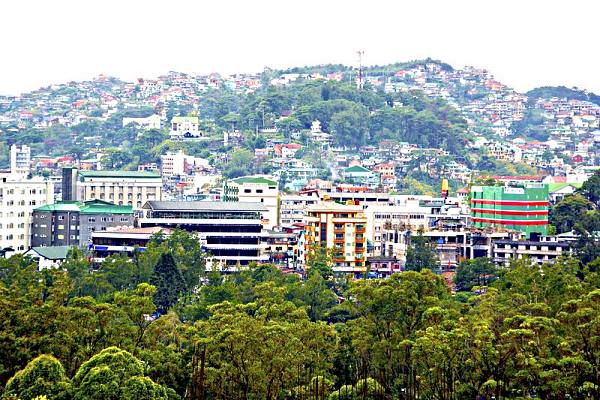Baguio City is not just known for its cool weather and tourist attractions; the summer capital’s rich cultural heritage and scenic views have made the city home to a thriving creative tourism and artistic community; National Artist Benedict “Bencab” Cabrera and famed director Kidlat Tahimik are among their long-time residents, along with an entire colony of contemporary and folk artists.
To support this community, the Baguio City Council has passed a resolution that encourages malls and other commercial centers to designate a space for arts and creativity to boost the city’s creative ecosystem, according to a post on the city’s official Facebook page on Tuesday, September 14.
“Baguio, being a Creative City, needs cohesive and collaborative efforts between the city government and the private sector in enhancing and sustaining the city’s creative spirit,” reads the message from the city council. They added that as a highly urbanized city, Baguio is home to business establishments that draw tourists and contribute to the city’s economic growth.
“Designating an arts and creativity space in every commercial establishment will help highlight the city’s artistic culture, thus increasing the level of awareness and appreciation of both locals and tourists.”
The city council added that Baguio’s vibrant community of artists and
artisans make the city distinct from others, and showing creative works “will result in sustainable economic gain for the business sector and for the local artists”.
“It’s a good first step in really bringing the creative economy into the mainstream, in catering to a more local market and not just relying on tourists”, according to Candy Reyes-Alipio, co-founder of Baguio-based social enterprise Knitting Expedition that sells toys and accessories knitted by Ifugao women who care for their town’s rice terraces.
Like other creative enterprises and businesses in Baguio, Knitting Expedition’s sales were impacted by the closure of large-scale fairs and malls in Manila amid the pandemic. Although the local government has extended help by forming a local artisan market called Mandeko Kito, the city council’s latest resolution further strengthens this support, Reyes-Alipio said.
“The pandemic also has really helped make people realize how big a role creatives play in the local economy, and how much support can still be given.”
Reyes-Alipio added that she hopes businesses embrace the resolution and recognize the value of local arts and crafts, and how it can drive the economy and help their business.
The city became part of the UNESCO Creative Cities Network in 2017, which recognizes cities whose creative culture plays a large part in their urban development.




